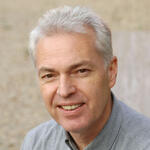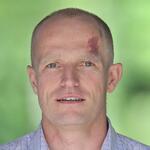MDC hosts three outstanding researchers
Stiftung Charité has announced it will fund six Einstein BIH Visiting Fellows, three of which will collaborate closely with researchers at the MDC. The program brings leading researchers from distinguished international universities to Berlin several times a year, where they are supported in setting up a research group on current topics in the life sciences. The visiting researchers work with host scientists from the Berlin Institute of Health, the Charité, and the Max Delbrück Center for Molecular Medicine in the Helmholtz Association. Stiftung Charité runs the program in close partnership with the Einstein Foundation Berlin. Funding is provided by the Private Excellence Initiative Johanna Quandt, which the initiative’s namesake established in 2013 in order to strengthen life sciences research in Berlin.
Single-cell biology for cancer medicine
One of the newly named Einstein BIH Visiting Fellows is Professor Chris Sander. He is Professor in Residence of Cell Biology at Harvard Medical School in the US, is the world’s leading researcher in the field of computational cancer research, and is one of the founders of perturbation biology – a technology that uses computer simulations to predict the response of cells to specific perturbations. His new research group in Berlin will harness the possibilities offered by new single-cell analysis techniques, in order to assess the effectiveness of drugs that treat various tumors and improve them in a targeted way. This should include, among other things, the generation of organoids from tissue samples and the analysis and simulation of their treatment possibilities down to the single-cell level. He will work closely with his host, Professor Nils Blüthgen, a bioinformatician at the Institute of Pathology of the Charité and the IRI Life Sciences. Participating from the Max Delbrück Center for Molecular Medicine (MDC) is Professor Markus Landthaler, a cellular biologist. The group will receive €450,000 in funding over the next three years.
Two perspectives on the role of microglia
David Gutmann and Helmut Kettenmann
The funding for Professor David Gutmann, a neurologist from Washington University School of Medicine in the US city of St. Louis, has been extended for two years. His host is Professor Helmut Kettenmann from the MDC. For 25 years, Gutmann’s research team has been working to define the molecular mechanisms that underlie a rare genetic condition that causes nervous system deficits, known as neurofibromatosis type 1 (NF1). The team discovered that microglia influence how the condition develops, specifically benign brain tumors that arise in children. It therefore made sense to collaborate with Helmut Kettenmann, one of the pioneers in glia research. Together, the groups are now studying how NF1 mutations alter the biology of the human and mouse microglia relevant to normal brain function. To this end, Gutmann collected skin and urine samples from patients and reprogrammed the cells to turn them into stem cells and then into microglia. This procedure enables the teams to compare normal and NF1-mutant cells. “The most interesting questions arise when I’m treating children with NF1. However, these problems can only be addressed through basic laboratory research,” says Gutmann.
A nucleus for genome architecture
Ana Pombo und Mario Nicodemi
Cells face a daunting task. They have to pack a several meter-long thread of genetic material into a tiny nucleus. This origami creates spatial interactions between genes and their switches, which can affect human health and disease. Professor Ana Pombo from the MDC has devised a powerful new technique that “maps” this three-dimensional geography of the entire genome. The molecular biologist hosts Professor Mario Nicodemi, a theoretical physicist from the University of Naples; his funding as BIH Visiting Fellow has been extended for two years. Nicodemi applies physical principles to understand which molecular mechanisms control the 3D architecture of the genome and uses models to predict their effect. The teams are cooperating closely with Professor Stefan Mundlos, a clinical geneticist from the Charité. “We’ve found out that mutations in the genome sequence that do not directly affect genes, often change the contacts between the genes and their regulatory elements elsewhere in the genome, and that certain congenital diseases are connected to that mechanism,” says Nicodemi.
Further information
- Interview with Helmut Kettenmann and David Gutmann
- Interview with Ana Pombo and Mario Nicodemi
- Press release by Stiftung Charité and the Einstein Foundation Berlin (PDF)










